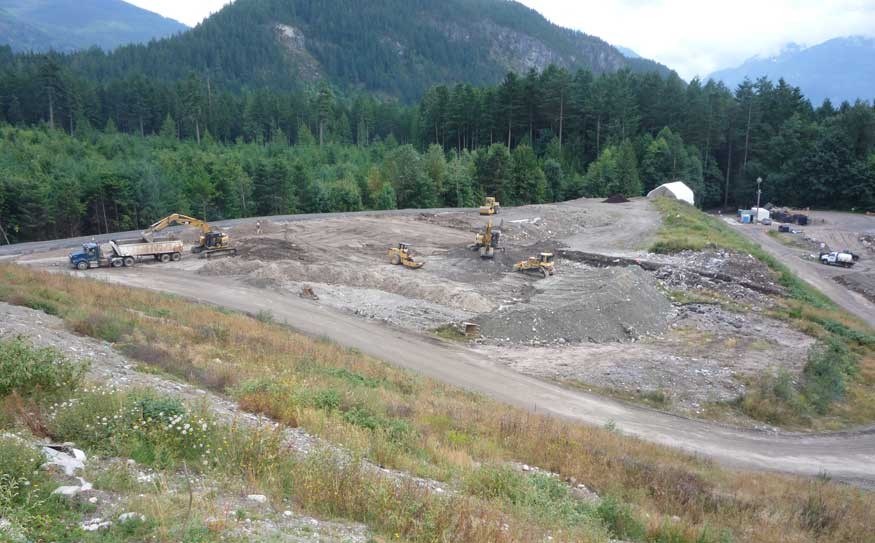Squamish will leap into its waste management future starting next month.
Rod MacLeod, Squamish's capital projects manager, told the members of Squamish council on Tuesday (Feb. 21) that the garbage dump currently in use is closing for good. A new landfill cell that has been under construction in anticipation of eventual closure of the current landfill will be opened for use starting next month, said MacLeod.
The new cell, right next to the current deposit site, is set up to capture leachate and send it to the wastewater treatment plant for processing. Over the course of the summer, as garbage goes into the new cell, a cap will be constructed over the old section to prevent rain from filtering through the stored garbage and creating more leachate.
The Squamish-Lillooet Regional District (SLRD) solid waste management plan created in 2007 called for the expansion of the landfill in Squamish, and the plan further called for the residential garbage collected in Whistler and Pemberton to be deposited at an expanded Squamish landfill.
At this point, there is no formal agreement in place for the residential waste collected in Whistler and Pemberton to go to the expanded Squamish landfill.
"There's all kinds of discussion and parties involved in that," said Squamish Mayor Rob Kirkham when asked if the garbage collected in the northern part of the Sea to Sky corridor would go into the landfill.
Added Brian Barnett, Squamish's general manager of Engineering and Parks: "We are working with our partners throughout the whole corridor about coordinating waste management."
Garbage collected at the Nesters and Function Junction compactor sites is currently being trucked south then transferred to rail cars and moved by train to the Roosevelt Regional Landfill in southern Washington State. Garbage from Pemberton and Whistler has been going there since 2006.
Whistler decided to export residential garbage generated in the community to Washington at a time when the Squamish landfill was operating out of compliance with provincial regulations.
In a presentation designed to update Whistler council in February of last year on the successes of the composting program in Whistler, the resort municipality's manager of environmental operations, Michael Day, reported that one of the priorities for his department was to reduce greenhouse gas generation by reducing waste-related transportation.
With discussion about the regional management of garbage continuing, MacLeod reported to Squamish council that the annual amount of garbage going into the Squamish landfill has been dropping by about a thousand tonnes a year. He said more reductions are expected in the future as increasing amounts of recyclable materials are diverted through initiatives like the annual Re-use It Fair and promotion of construction debris separation.
MacLeod asked Squamish council to give his department clearance to issue a RFP requesting submissions from companies willing to offer a curbside yard waste collection and composting system. The request was granted after MacLeod said the RFP could be issued as soon as next week.
The SLRD solid waste management plan from 2007 encourages Squamish to launch such a program along with a community engagement initiative to reduce the amount of yard waste entering the landfill.




